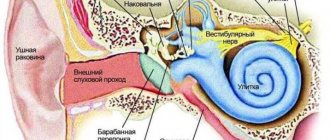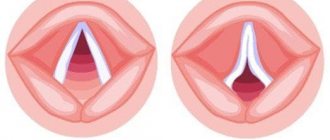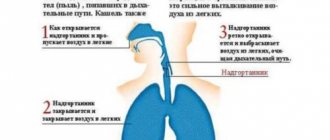Depression is a mental disorder in which a person experiences depressed, depressed mood and a decreased or even complete loss of the ability to experience pleasure. Depression does not only affect adults, as many people are accustomed to thinking.
This disease is also being diagnosed in children. Moreover, this disease can manifest itself almost from birth. The disease is included in the International Classification of Diseases (ICD-10) under code F32 and has three degrees: mild, moderate and severe.
In some cases, childhood depression may be mistaken for ASD, especially at an early age. This is due to the similar symptoms of both disorders. With autism spectrum disorder, children also experience problems with communication, communication, and behavior, as with childhood depression.
A depressed state in a child inhibits cognitive development and therefore requires mandatory correction. You can prevent negative consequences if you identify the signs of an incipient disease in time.
Causes of childhood depression
Depression in a child can appear only when he has a certain basis for this condition. These are biochemical, neurological, hereditary and psychosocial factors. This is already accompanied by formal reasons that provoke depression, such as problems at school, at home, feelings of loneliness, etc.
Possible causes of childhood depression:
- Lesions of the central nervous system. Can be caused by intrauterine infections, intrauterine fetal hypoxia, neonatal encephalopathy, asphyxia. All this leads to brain damage;
- Hereditary predisposition. Children whose parents often suffered from depression are themselves susceptible to this ailment;
- Problems of a psychological and emotional nature. For example, a child constantly observes conflicts between parents, experiences excessive care and attention from parents or lack thereof (over- and under-custody, “family idol” type of upbringing), grows up with only one parent, and encounters regular misunderstanding when communicating with significant adults;
- When experiencing severe mental trauma. For example, parental divorce, illness of loved ones or someone’s death;
- Non-permanent place of residence. When moving frequently, the child experiences stress and does not have time to make close friends with whom he could share his experiences and tell secrets;
- The child spends a lot of time in lessons and classes and does not get enough sleep. During periods of mental and physical overstrain, he is most susceptible to depressive states;
- Problems with studies. The child begins to lag behind his peers, as a result of which he may be subject to ridicule and bullying on their part, his self-esteem begins to decline;
- Teenage years. During adolescence, the body undergoes restructuring (the appearance of menstruation in girls and nocturnal emissions in boys), changes in body shape, and the appearance of acne. Children can become more aggressive due to the production of certain hormones. In their social circle, leaders and outsiders begin to stand out. A teenager who is not accepted into social groups feels lonely and unwanted, which leads to depression.
The cause of the disease is often health problems. These include frequent headaches, allergies, diseases of the stomach, thyroid gland, poor diet and excessive consumption of sugars. But these problems themselves can cause depression only if they are chronic and worsen the quality of life, thereby causing the child to worry about this.
Depression in children
DOES CHILDREN HAVE DEPRESSION?
It is generally accepted that adults who have experienced severe stress are susceptible to depression.
In children, poor health or behavior is attributed to a lack of upbringing, excessive whims, and selfishness. In fact, depression is a real mental illness that manifests itself in various emotional disorders. Depression also occurs in children. Depression usually occurs in children during adolescence, more often in girls. There are early (12 years), middle (up to 16 years) and late depression. And if in the younger group only 2% of children have depression, then in the middle and older age groups children are susceptible to depression as often as adults. Some child psychiatrists and psychotherapists believe that depression in children can appear even in the newborn period, as well as at the age of 3-4 years, when the baby is able to distinguish between his feelings, emotions and talk about it.
Parents should know that depression in children and adolescents is a disease that requires, at a minimum, consultation with a child psychotherapist, and, at a maximum, serious treatment. Depression in children can lead not only to severe mental disorders and neurotic disorders, but also to provoke thoughts of suicide.
CAUSES OF DEPRESSION IN CHILDREN AND ADOLESCENTS
There are physiological and psychological factors that can cause depression in children and adolescents.
Child psychotherapists include the following physiological factors of depression:
- various pathologies in the prenatal and newborn state (prolonged fetal hypoxia, asphyxia during childbirth, etc.). This affects brain development and can cause mental illness.
- hormonal changes in the body. During adolescence, when active physiological changes occur (the body changes, menstruation appears in girls and nocturnal emissions in boys), excess hormones can significantly affect well-being and emotional background.
- disruption of biochemical processes in the brain, which can result in a depressive state. This type includes seasonal depression that occurs against the background of general well-being.
- diabetes mellitus, endocrine diseases, frequent headaches, gastrointestinal problems - depressive states can also occur against the background of these diseases.
Psychological causes of depression in children include:
- unsettlement, emotional dissatisfaction in the family. Constant quarrels between parents, divorce, lack of understanding between parents and child, excessive custody and, on the contrary, lack of care. All this leads to the fact that the child cannot share his experiences with mom and dad, becomes withdrawn, emotionally infantile, sometimes aggressive and uncontrollable.
- problems at school. These could be quarrels with peers, conflicts with teachers, and academic failure. The child begins to feel different from everyone else, lagging behind, worthless, unsuccessful compared to school leaders.
- change of residence. Having been deprived of a familiar environment, having lost touch with friends in the yard, a teenager may experience a feeling of loneliness, which leads to the development of depression.
- staying at the computer for a long time. In this case, the child may simply disconnect from the real world, losing the skills of live communication.
- psychological trauma. Severe stress due to the death or loss of someone close to you, fear after a terrible situation (violence, accident, etc.), isolation due to a serious illness or physical disability (for example, a severe burn, disability, etc. .).
Late depression can occur in adolescents immediately after graduation, when they experience difficulties in choosing a future path, feel their own helplessness and the unattainability of their desired goals.
Establishing the cause is important in order to prescribe adequate and effective treatment for depression in children and adolescents. An experienced child psychotherapist from the Chelyabinsk Research Institute Indigo Children will help you understand the problem.
SYMPTOMS OF DEPRESSION IN CHILDREN
A classic manifestation of depression in children, as in adults: poor mood and well-being, lack of desire to move actively, decreased mental activity. In younger children, depression manifests itself in the form of general weakness, poor appetite, sleep disturbances, excessive tearfulness, enuresis, nightmares, loss of interest in favorite toys, isolation, etc. One of the main signs of depression in a child is emotional imbalance, sudden and fairly frequent changes in mood (from a gloomy state to unbridled joy and back).
In teenagers, symptoms of depression can be more aggressive: they become angry, rude, irritable, and often start smoking, drinking alcohol and using drugs. Such depression is difficult to eliminate with a heart-to-heart conversation; immediate help from an experienced child psychiatrist or psychotherapist is required.
WHAT TO PAY ATTENTION TO PARENTS
Parents are often busy, justifying themselves with the desire to earn more in order to provide for their child. The lack of confidential communication, close contact with parents (elementary hugs) leads to the fact that the child feels unloved and unwanted. And constant complaints (didn’t learn lessons, didn’t clean the room, didn’t take out the trash) aggravate the situation.
You can avoid long-term treatment for depression in your children if you detect the problem in time. A small test will help determine whether everything is okay with the child’s emotional health.
- Does the child become aggressive or, on the contrary, seem detached if he fails to do something (solve a problem, do a craft, etc.)?
- Does your child often cry without a good reason?
- Is the child able to concentrate when performing a serious task?
- Does your child have problems falling asleep or often wakes up at night?
- Does the child often spend time alone, provided that at this time he had the opportunity to walk and communicate with peers?
- Have the child’s eating habits changed (for example, has he started giving up once-loved foods)?
- Have there been any sudden changes in weight (significant weight loss or sudden weight gain)?
- Does the child complain of feelings of dissatisfaction or sadness?
- Does the child look tired or exhausted?
- Does the child threaten to harm himself or talk about death?
If the answer to at least half of the questions is affirmative, there is a high probability that the child is depressed and an urgent consultation with a child psychotherapist is required. In Chelyabinsk, this can be done at the Indigo Children Research Institute.
HOW TO TREAT DEPRESSION IN CHILDREN AND ADOLESCENTS
Depression in children can last two years or more. You can't expect it to go away on its own. Indeed, with a mild form of mental disorder, the child’s mental health can be rehabilitated on its own. But with a long course of the disease, the help of a child psychotherapist is simply necessary, otherwise you can lose the child in the literal and figurative sense.
Anti-anxiety medications and antidepressants are often prescribed to children to treat depression. The risk of possible complications and side effects should be assessed by the attending physician.
At the Indigo Children Research Institute, specialists use modern hardware techniques and proprietary schemes to treat depression in children, which do not have a harmful effect on the body and allow the child to recover faster and more effectively.
Sign up for a consultation on the treatment of the disease - depression in children in Chelyabinsk. Reception is conducted by highly qualified child psychologists, psychotherapists, and neuropsychologists.
Symptoms and signs of childhood depression
It is very difficult to determine the development of the disease at the initial stage, especially at an early age, when the baby does not show any complaints. Also difficult is the similarity with other diseases.
With depressive reactions, the following are often observed:
- General lethargy and weakness. The child quickly gets tired even with minimal physical exertion, his reaction slows down, and coordination of movements worsens;
- Sleep disorders. The baby wakes up and cries in his sleep, he may develop insomnia;
- Lethargy;
- Frequent mood swings, inability to rejoice and enjoy life;
- Decreased interest in life. Children become withdrawn, lack initiative, do not want to study, communicate, or play;
- Uncontrolled appetite or lack thereof, as well as eating disorders. Parents should be alerted that the child refuses to eat or, conversely, eats too often and in large portions;
- Anxiety;
- Dysthymia. The child begins to be gloomy, gloomy, capricious, embittered, constantly complaining, making reproaches and accusations;
- Speech defects. A speech pattern similar to alalia, ZRR may develop;
- Decreased self-esteem and self-confidence;
- Psychosomatic disorders (vomiting for no reason, abdominal pain of unknown origin, neurodermatitis, bronchial asthma, increased frequency of seasonal colds, allergies and others).
- Enuresis, encopresis;
- Refusal to perform daily activities (brushing teeth, combing hair, going to school, etc.);
- In severe childhood depression - thoughts of suicide;
Teenage depression: how to help? Psychologist's advice
Dramatic changes in consciousness and body often cause character changes in adolescents, not for the better, and neuroses. Not everyone allows themselves to openly express these negative feelings due to their upbringing, so they suppress them. If a teenager does not find a way to express his anger, he may become depressed. Nadezhda Efimova, a specialist at the Moscow Psychological Assistance Service, explains how this condition occurs and what parents should do.
Useful Mela newsletter twice a week: Tuesday and Friday
SUBSCRIBE
ShutterStock
Alarm bells
Depression is a persistent, long-term decrease in mood. It can occur at any age and indicates the suppression of strong emotions and dissatisfaction with oneself.
Symptoms of depression include:
- depressed or constantly changing mood for a long time;
- decrease/loss of interest in almost any activity (school performance deteriorates; there is a reluctance to study and go to school);
- decreased or increased appetite (weight change of more than 5% within a month);
- sleep disturbance (constant drowsiness or insomnia);
- psychomotor (mental, motor) agitation or retardation, which is observed every day, alternation of these states;
- complaints of poor health (lack of strength, feeling tired, decreased vitality);
- an inferiority complex or a basic depressive idea about oneself (the child may say “nobody needs me”, “nobody loves me”, “I’m bad”, “I’m stupid, I’m clueless”);
- decreased ability to concentrate, indecision, isolation, indifference;
- thoughts of death, suicidal mood, development of a plan, suicide attempt.
“If a teenager experiences half or more of these symptoms for more than two weeks, there is a high probability that a specialist can diagnose a depressive episode,” the psychologist notes.
Understand what needs to change
According to American clinical psychologist and psychotherapist Douglas Riley, to better understand depression, it should be viewed not only as a specific disease or set of symptoms, but also as a message. What depression is really trying to tell us is that something in our life needs to change in order to feel better.
Depression gives us feedback about the unhappiness of three aspects of our life:
- Biochemistry - physiological disorders, diseases, the effect of medications on the body, hormonal disorders.
- Stress caused by external conditions (unfavorable family situation, the appearance of another child, loss of a loved one, breakup of a relationship, academic failure, negative attitude of a teacher).
- Negative thoughts and beliefs about yourself and others: “I want to die”, “I am the worst of all”, “I am good for nothing”, “No one will ever like me”, “I am unfair”, “I cannot live without this person”, “I’m going crazy”, “my parents don’t love me”, “alcohol, drugs, food will make me happy”, “nothing will ever change for the better.”
Hear and support the child
Mother Ekaterina and her 15-year-old daughter came for a consultation. During the conversation, the teenage girl said that she did not have the strength or desire to do anything, she did not understand much at school and did not keep up, and as a result her performance dropped. She also did not accept and criticized her appearance (“I’m a fat, fat cow”), spoke about the lack of close friends: “everyone only thinks bad things about me,” and this prevented her from building friendly relationships, and noted her parents’ lack of understanding of her condition. The parents denied their daughter’s condition, focusing on the fact that it was all laziness and she herself was largely to blame. “In the process of therapy with Masha, we dealt with her negative beliefs and thoughts about herself. We understood when they appeared, what feelings she experienced, which contributed to such conclusions. The girl learned to express her emotions in order to be understood by others, without destroying herself from the inside,” says the specialist.
At the same time, psychological work was carried out with the parents, during which the psychologist helped look for the reasons for the misunderstanding, sorted out conflict situations, and worked out strategies for behavior in relationships with their daughter.
As a result, trusting, supportive relationships have been built in the family. Maria has gained self-confidence, she has caught up with the curriculum and is now successfully studying at school, she has strength and energy, she is making plans for the future. Maria accepted her appearance and began to treat her body with care. The fear of negative thoughts from others disappeared and this allowed me to make friends.
If any psychological difficulties arise in relationships with children and adolescents, residents of the capital can always turn to specialists from the Moscow Psychological Assistance Service for free psychological support. Sign up for consultations on the website msph.ru. 24-hour emergency psychological help telephone number: 051 (from a landline phone); +7 (495) 051 (from a mobile phone).
Consultation for parents “Depression in adolescence - ways out of the crisis”
Consultation for parents
“Depression in adolescence - ways out of the crisis”
Depression
- the most fashionable diagnosis, which is often abused by ordinary citizens, attributing to themselves this condition when they are in a bad mood and exhaustion. However, special attention has recently been paid to depression in adolescence.
Teenage depression is a fairly common concept among a new generation of rebels against the dogmas imposed by adults. The now fashionable word “indigo children” best describes the behavior pattern of modern teenagers.
Depression in adolescence, unfortunately, is not a rare, but extremely unpleasant phenomenon.
Teenage depression has been talked about more and more lately. Studies conducted in different countries have shown that the prevalence of this disorder is much more significant than was commonly thought. What was previously designated by vague terms “adolescence”, “age-related personality restructuring”, “character breakdown”, etc., in many cases turned out to be a manifestation of teenage depression.
Depression in teenagers can have countless causes and unpleasant consequences. And, unfortunately, it is not always possible to adequately diagnose and recognize depressive states in adolescents. Even professionals often find themselves in a dead end situation when there are no objective criteria for making a diagnosis, but the general socio-psychological well-being of a teenager is rapidly deteriorating.
Most often, teenage depression manifests itself as a kind of gloomy-sad mood, in which the teenager loses interest in his surroundings; In his speech, phrases like “everything is useless”, “life is meaningless”, “tired of living” slip through. Depression is almost always accompanied by a decrease in school and student performance and social maladjustment. It should be remembered that, unlike adults, a teenager retains the rudiments of a child’s perception of the situation, when problems that arise are perceived as eternal, insoluble, and the reaction to them can be inadequate and overly emotional
Depressive thoughts and experiences can be reflected in short but emotional conversations and emotionally charged phrases. Teenagers are great conspirators; they masterfully mask depression, sometimes so well that at some point it becomes “the norm of life” for them. This is precisely the reason for the introduction of a new term: “depression with a smile,” which refers to the skillful camouflage under the guise of well-being (surrounded by people) of extreme despair, a feeling of dejection, loneliness, and feelings of hopelessness.
Depression often becomes the cause of interpersonal conflicts - both with teachers and with peers. In a state of depression, a teenager becomes deliberately rude, cynical, and repels others with unexpected cruelty and unmotivated aggression. As a result, he remains isolated. Loneliness makes depression even worse. The teenager withdraws into himself, remaining alone with his experiences: “I’m so unbearably alone,” “nobody understands me,” “nobody cares about my fate.” Such a situation can push a teenager to look for new companies – often of an antisocial, criminal or drug-addicted nature.
It is important to note that depressed adolescents are extremely susceptible to the influence of the adolescent's antisocial offending behavior, embodied in his misdeeds by criminogenic and marginal groups, which often offer support, love and unconditional acceptance to the adolescent, which he cannot find in his social group or family.
Thus, unrecognized depression can become the cause of an individual’s antisocial and unlawful behavior, embodied in his misdeeds. In a state of chronic or acute depression, a teenager is more likely to resort to alcohol, drugs, or aggressive and illegal behavior, despite the outward satisfaction of his living conditions (on the question of why children from high-income families take the path of deviation).
Classic “adult” depression is despondency, feelings of hopelessness, helplessness and despair. To these are added somatic symptoms, such as disturbances in sleep and eating patterns, a state of lack of energy and loss of strength, as well as a drop in self-esteem and level of aspirations.
Causes of teenage depression
Teenagers are the contingent that has left the happy time of childhood, but has not yet become a part of adult society. At the same time, they become the main problem for their parents, who are amazed at the transformation of their child from a sweet creature into a rebellious personality.
Often, depressed teenagers are dissatisfied with their surroundings and isolate themselves from the school community. A depressed teenager often considers himself a bad and worthless person; such depression is always accompanied by a violation of self-esteem
The causes of depression, as a rule, are various factors within the personal and social sense and has the following causes.
- Hormonal changes in the body
. This restructuring of the body greatly affects its cardiac system, while affecting the functioning of the nervous system.
- Congenital pathologies
. In the case of brain damage, which can even cause intrauterine infections, fertile ground for depression can form in an older child.
- Family situation
. In constant conflict situations in the family, the teenager tries to protect himself from this and withdraws into himself. Alcoholic parents are also not a bright prospect for the development of a child at a difficult age. Another significant blow could be the departure of one of them in search of a new life.
- Wrong sexual culture
.
- Public opinion
. Not every teenager can resist the factor, which can trigger the mechanism of depression. This is especially true for children with non-standard appearance and weight problems.
- Unhappy first love
. The child’s first feeling will not always have a response from the chosen one, which can lead to despair and depression. If ridicule from classmates is added to this, then the problem will arise in 80% of cases. Unrequited love becomes the main impetus for bullying oneself and one’s body. If you don't help your child cope with depression, the consequences can be too sad.
- Frequently moving from one place to another
. It is possible to win the respect of the children's team if you have a strong character, but repeating this again and again is very problematic.
- Problems in obtaining secondary education
.
- Additional load
. Parents on a grand scale love to plan the daily routine of their offspring to the maximum.
- Internet test
. There are a lot of temptations on the Internet, because it offers a wide variety of sites and games. At the same time, the teenager ceases to adequately perceive the surrounding reality, becoming a victim of depression in case of failures on social networking portals.
- Death of loved ones
. This problem is beyond the capabilities of even an adult, because it carries with it a psychologically destructive element.
- Seasonal depression
. Not only adults, but also some teenagers are susceptible to this negative phenomenon.
Symptoms and signs of depression in teenagers
Signs of teenage depression - lethargy, apathy, lack of interest in school and work - are often regarded by adults as laziness.
First of all, you should pay attention to:
- Prolonged apathy, indifference, indifference, detachment from everything that happens - people, events. The absence of any desires and the absence of obvious reasons for such states.
- Explicit or veiled expression of thoughts about the meaninglessness of everything that happens.
- insomnia at night, and the inability to wake up such children and adolescents in the morning.
- Immerse yourself in computer games, listen to loud heavy music, hide from the world behind headphones.
- arrogance and egocentrism.
System for combating depression in adolescents
Many methods have been created to combat teenage depression. First of all, experts advise doing the following to eliminate the blues in a child:
- Positive example method
. To lift a teenager out of depression, you need to show him his peers who have achieved a lot at a young age. This method always works if you use it wisely.
- Family help
. During a difficult period for a teenager, it is very important for him to feel the support of loved ones. Nothing can replace the warmth of their parents' hearts for a child, although at the same time he will pretend to be indifferent.
- Increased self-esteem
. For this, working with a psychologist, body correction (a subscription to a cool gym will help not only restore the correct proportions, but also increase your rating among peers), and contacting a cosmetologist, etc.
- Well-organized leisure time
. An active teenager will have no time to mope if he is passionate about something. \
Instead of teachings and instructions on how to live, it is better to just talk about life and philosophize. It is important to alleviate the depressed teenager’s condition, to support his internal unconscious desire to change the world. Maybe even say: “Who, if not you, will make this world a better place?”
All the talk about career and wealth, about love and family will not find a response in the soul of a depressed teenager, but will only push him away from his parents. And in adolescence, in the wake of contradictions, they can plunge a teenager even deeper into a state of depression. It’s best to quietly whisper in his ear: “There is meaning in life...”
Conclusion
Depression is a depressed, depressed, melancholy state that occurs as a reaction to difficult and unpleasant situations.
Many adults find it difficult to predict and detect stress in their lives, let alone teenagers. Adolescents need to feel competent and independent, but influence from adults must be maintained, if only so that the child feels that he has support and support. We need to show the teenager that the world is not a dichotomy of good and evil, bad and good, but that reality is diverse and multifaceted. It is by relying on such knowledge that a teenager will be able to make a more rational and socially acceptable choice.
Bibliography
Aleksandrovsky Yu. A. Through the eyes of a psychiatrist. M., 1977.
Zhuravlev D. Causes of depression at school //Public education.- 2002- No. 6
https://depressiya-nevroz.ru/podrostkovaya-depressiya/
7
Causes of teenage depression:
During puberty, crises are inevitable: hormonal changes in the body and the emotional instability caused by it are “successfully” combined with a moment of reassessment of all life attitudes, a search for answers to “non-childish” questions, and a change in the nature of social interaction.
Add here the first interest in sexuality, falling in love, as well as growing pressure from school, approaching exams and the need to choose their future destiny hanging over all high school students. And self-doubt is perfectly reinforced by hormonal changes in the body (including weight), acne and mood swings.
Relationships with parents also most often suffer: children can no longer accept established “children’s” roles, and parents are not yet ready to give up their previous ways of interaction. For some, the process of adjustment is relatively easy, while for others, the teenage crisis is marked by the first episode of depression or bipolar disorder.
Even the most attentive parents often do not notice the symptoms of depression in their children, because most of the manifestations of the disease are interpreted as manifestations of “bad character,” “stubbornness,” “laziness,” and so on.
However, teenagers for the most part do not tell adults about their problems when it comes to emotional disturbances: they expect devaluation and lectures in advance.
Psychologist for teenagers in St. Petersburg
So, what you need to know about adolescence:
- This period of growing up is not forever! It will definitely end. Each parent, taking certain steps in further education, remembers his “difficult age”. Therefore, he often thinks: “God, how did my parents even endure this…”
- Keep a diary (or wish list). Write down in it every day what you were pleased with with yourself over the past day. It won't be easy to lead him at first. But each time you will do better. The main rule is not to give up! Write not about your global achievements, but about all of them, even the most insignificant ones. For example: they cleaned up the room, wiped off the dust, went to the movies with friends, prepared for a test, completed their homework perfectly, helped grandma cross the road, etc. This will help you feel your strengths. Check your diary more often! Get better.
- Write down moments when you exceeded your expectations. For example, you thought that you would pass the test with a C, but you passed with an “excellent” or “good.” Or they only wanted to wash their own plate, but they washed all the dishes for the family, and even wiped the table. This will help you realize that there are no limits to good deeds. You can do anything.
- Get rid of “external noise” and criticism. Weigh everything that others tell you. Don't drown out your individuality by believing every word other people say. Stop and think about whether what they are telling you and advising you is fair? If so, then think about these words more seriously. If not, just drown out the noise in your head.
- Talk to yourself respectfully. Have you noticed such thoughts in your head? “Everyone is looking at me askance,” although this is not true at all. Or, for example, “they clearly hate me” - and this is also completely untrue. Your brain may tell you that you are not good enough. Therefore, it is important to learn to talk to yourself as to a person you respect. If we find such thoughts, we immediately write these words down on paper. And mentally tell yourself: “STOP, I won’t talk to myself in that tone.” Then change the negative words to positive ones. For example, “My family loves me,” “I believe in myself,” “I deserve respect.”
- Spend time with those who love you. Only family can give unconditional love. These relationships strengthen self-esteem.
- Do good deeds. At this moment you will feel significant, needed and useful. You can collect waste paper, look after children, help your mother around the house or your grandmother - a neighbor. It doesn't matter what good deeds you do. The main thing is to act.
- Find an understanding adult to talk to. Sometimes you can’t tell parents everything or get advice. But there is always an adult around who can help, talk or give advice. Help from a psychologist for a teenager is also suitable in this situation.
- Recommendations for teenagers from a psychologist: determine values. It is important to designate how and with whom to spend time next. With whom or what to connect your life. For example, friends, education, sports, animals, art and music, family and the city. Also important are the life qualities that will accompany you throughout your life: reliability and kindness, loyalty and hard work, energy and tenderness, honesty and independence, willingness to help and skill. Ask yourself: “Who and what matters to me?” And answer this question on paper.
- An anonymous psychologist for teenagers recommends: draw your dreams. Desires can be fulfilled if you visualize them. Think about the people you admire. What do these people do and why are they special to you? These could be loved ones, acquaintances or even famous people. Why do you consider them great? Imagine yourself the same way. Draw this image and save it.
- Advice from a psychologist for children. Identify your sources of inspiration. Answer your questions and write down on paper (in the same diary): what do you like to do? What gives meaning to life? What do I have a talent for? What do you like to read and watch movies about? Answering these questions will help you gain energy and confidence.
- Set goals, even small ones, and achieve them. Write it down on paper and do it. Don't be discouraged if you can't reach everyone at once. Go towards your goals gradually, breaking them down into smaller steps. Solving these problems will add to your self-confidence and courage. Take action.
- Think big. There are no unattainable goals. Dream big! This will help you achieve your goals as quickly as possible.
- Read books. They help expand your horizons, find brilliant ideas and turn your train of thought in the right direction.
- Plan your future day. If you spend all your time playing computer games, then you need to expand your abilities. By distributing and planning your day, you will learn to cope with responsibilities. Planning will give you more free time. And you can use your free time as you wish, again relying on your future. Play games or learn English - the choice is yours.
- Take care of your health. Proper nutrition and exercise are the key to good health, energy and endurance. It’s not for nothing that parents and adults use the saying: “A healthy mind in a healthy body”? Change your habits.
- Psychologist for a 14-year-old teenager. Diversify your leisure time. Help your parents prepare dinner, play board games, attend exhibitions, master classes and movies, take up sports and new hobbies.
- Advice from a psychologist for a 15-year-old teenager. Communicate in a friendly and polite manner with your peers. Help them. Accept their physical formation with positive emotions. Support each other, protect each other. Play sports together.
Causes of depression
Depression can occur for various reasons - due to traumatic events, a negative environment at school or family, low self-esteem. But it can also be caused by non-obvious triggers that are not on the surface and are not considered by parents. For example: disruption of neurochemical processes in the brain associated with a deficiency of neurotransmitters (norepinephrine, serotonin and dopamine); changes in hormonal balance in the body; inherited traits (close relatives with a history of depression); a traumatic event in early childhood (physical or psychological abuse, loss of a parent); learned examples of negative thinking, when it is easier for a person to feel helpless than to find solutions and cope with problems.











